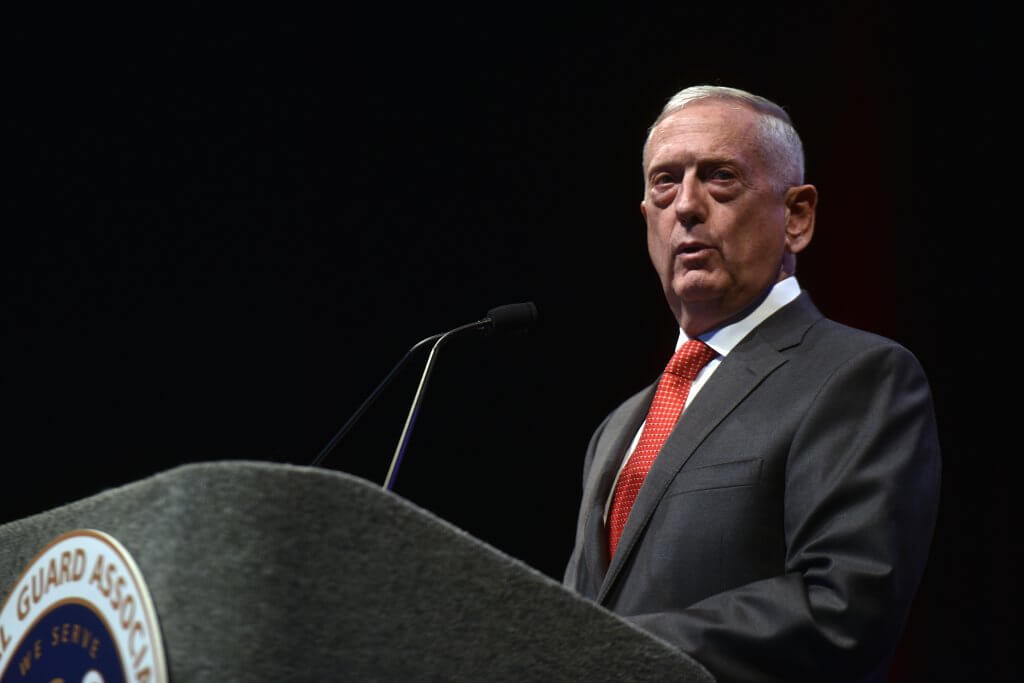Retired Marine Gen. James Mattis recently penned a new book, “Call Sign Chaos,” detailing his youth, philosophies on leadership, and how he unexpectedly found himself called out of retirement to serve as the 26th secretary of defense. Among the notable accomplishments attached to his career, it is perhaps his relationship with the troops that will become the most prominent part of his legacy. The reverence for the longtime leader transcends service branch and rank as he finds himself the subject of memes, military blogs, and even 2020 campaign bumper stickers.
“With no false modesty, I think I was a pretty average Marine. I was always in the right place at the right time. But I spent a fair amount of time trying to make very clear what my intent was and I just kind of liked the troops. It was an affection I had for them. It’s why I stuck around the military,” he said. “And I would always reward initiative, even if once in a while it got them in trouble. Then I would make very clear the end state, ‘when it’s done, we’ll be positioned ready to cross the Tigris River.’
Then I’d take my hand off the steering wheel, I’d wander around and see how they’re doing. I didn’t believe in command and control, I wanted command and feedback.”
He often examines the successes and failures of leadership for its correlation to unit cohesion. Building up trust is not enough, he says, rather NCOs and officers need to be tough, but “always tough on their (Marines) side.”
“I sometimes wondered why a 40-man platoon here was so smooth moving against the enemy, even when they were taking casualties, and here was a 160-man company — it was still capable, trained well, recruited the same — but why was a 40-man platoon so effective against an enemy when a larger unit was not as agile, not as smooth? I think the word is affection,” he said.
Four decades with the Marines
Mattis enlisted in the Marine Corps Reserve at age 18, then was commissioned a second lieutenant in 1971 after graduating from Central Washington University. He would serve as a Marine Corps officer until his departure in 2013. But retirement didn’t last long. A call about an interview with then President-elect Donald Trump for the defense secretary position thrust Mattis back into the public’s eye.
He was no stranger to what the role required as he served as senior military assistant to the deputy secretary of defense, executive secretary to the secretary of defense, among other billets, according to the Department of Defense website.
What’s next?
Late last year, Mattis resigned his Pentagon position citing policy differences with the president. “Call Sign Chaos,” which is co-authored with Bing West, has kept him busy since.
“First, I wasn’t going to write a book and one of my mentors — I’ve had many over the years — said, ‘you know you’ve been lucky and you’ve learned a lot from your reading and you ought to pass on the way you adopted things to your style so others can see it,’” Mattis said.
The book targets those in the military and business with the following takeaways:
- Trust is the coin of the realm in leaders: You have to be able to trust your subordinates and trust your seniors, and when you’ve told them what you want, train them, and then delegate as much authority for decisions and just take your hands off the steering wheel. You’re still responsible, but don’t try to make all the decisions.
- Allies: I never fought once without allies, never once with all Americans, and so nations with allies thrive and nations without allies die. Treat them with respect.
As he prepares to start the second act of his retirement, Mattis plans to keep it simple in civilian life.
“I’m going to travel more around the American West, I’m going to do more rock climbing, and I’m going to read books that have nothing to do with fighting.”

